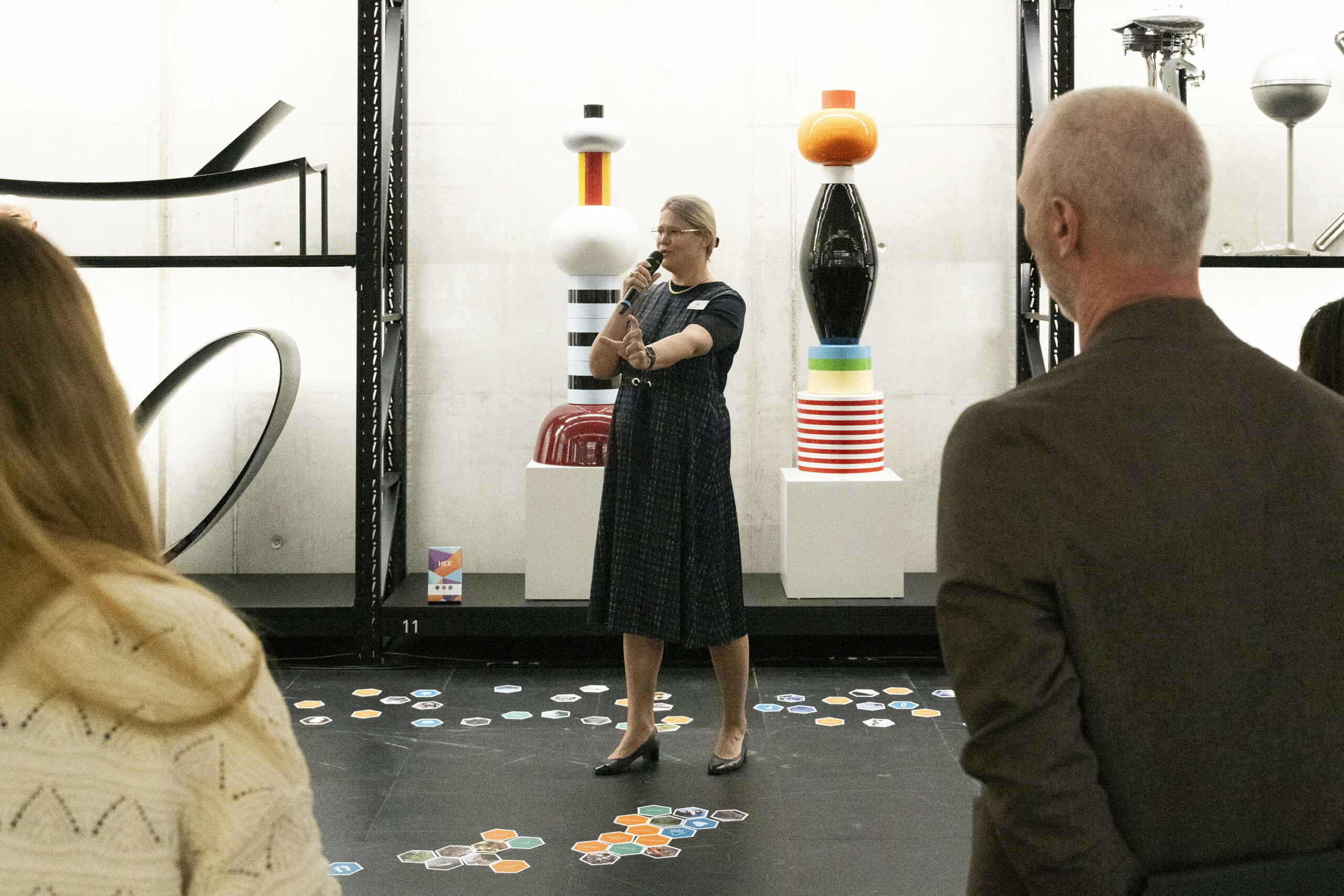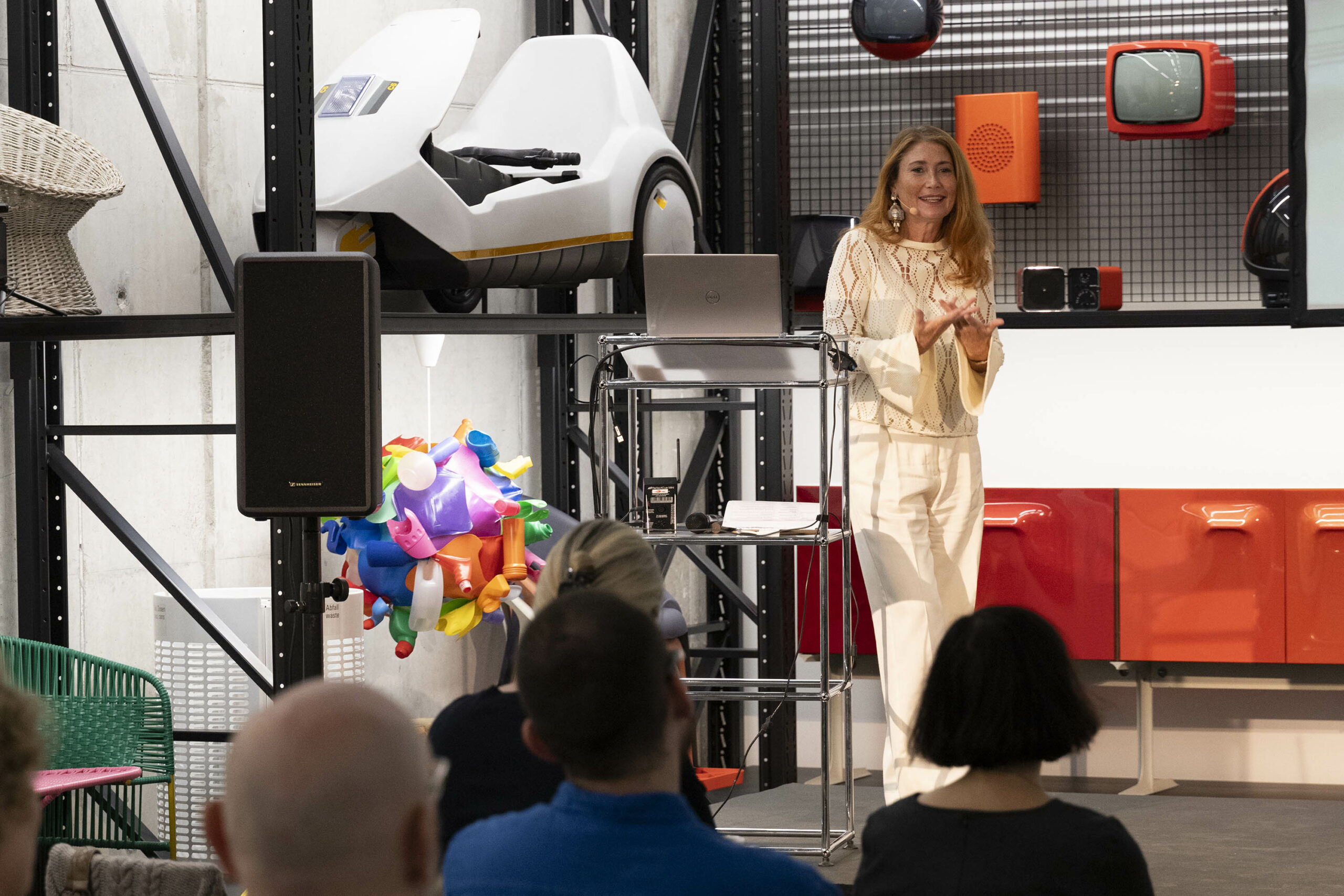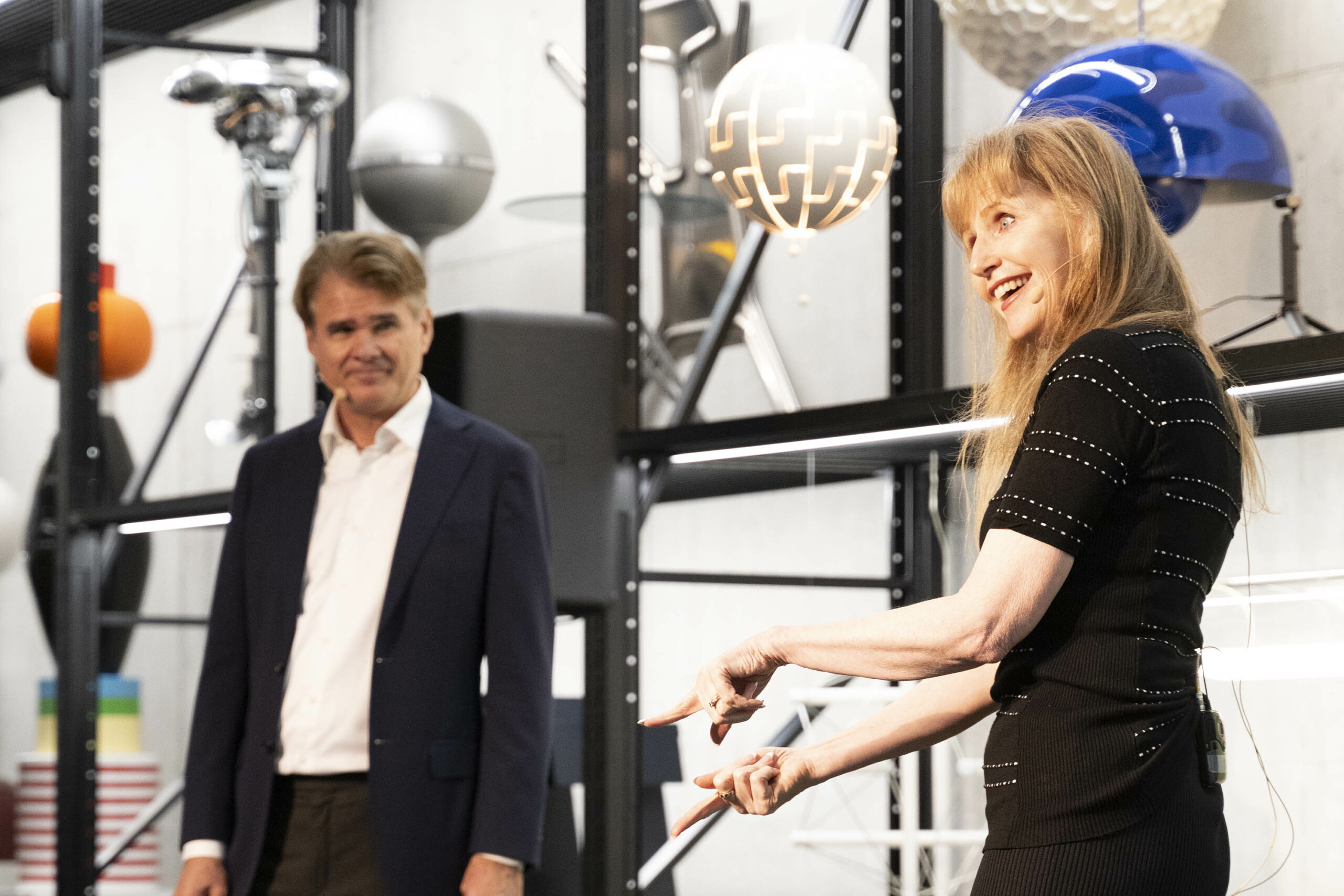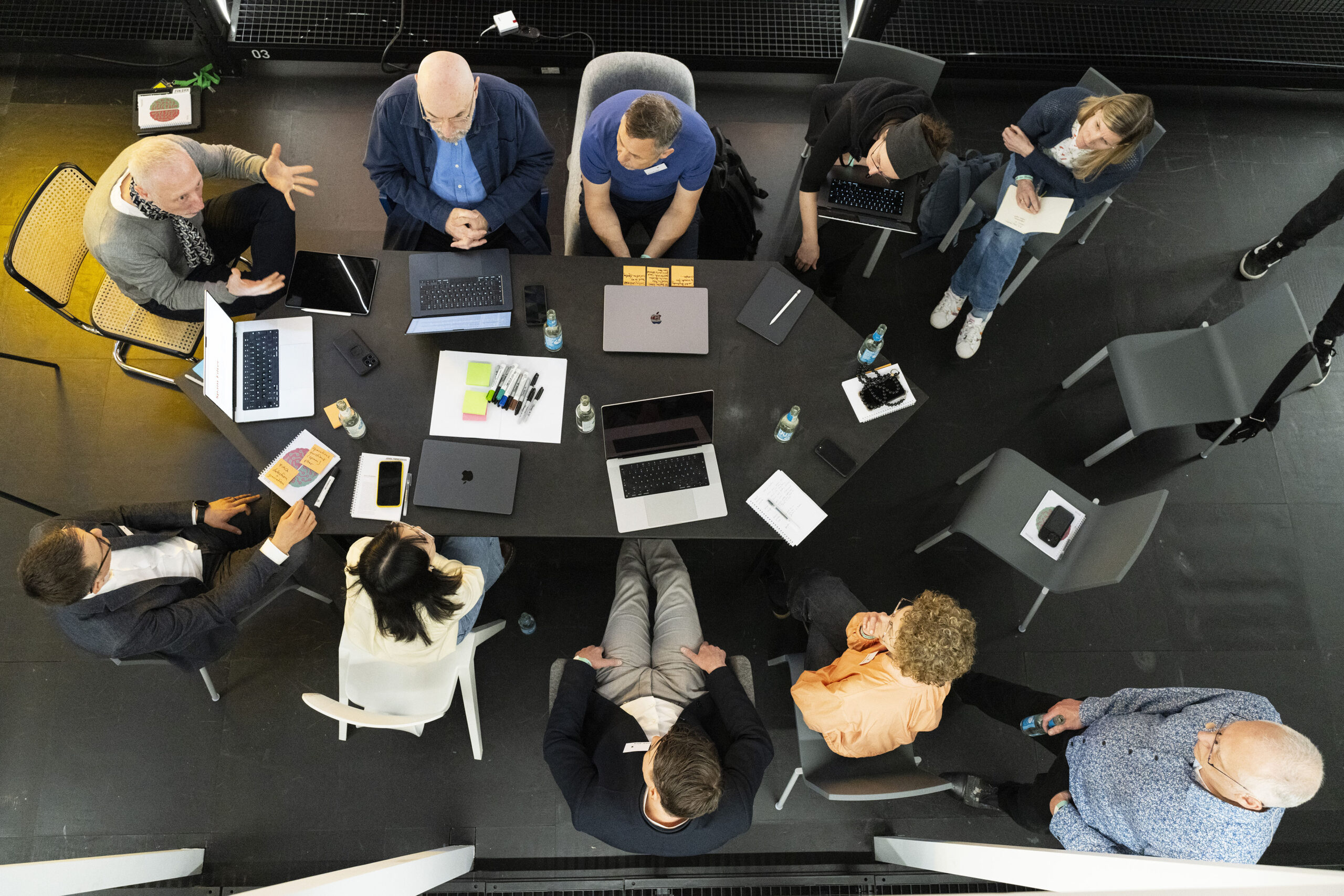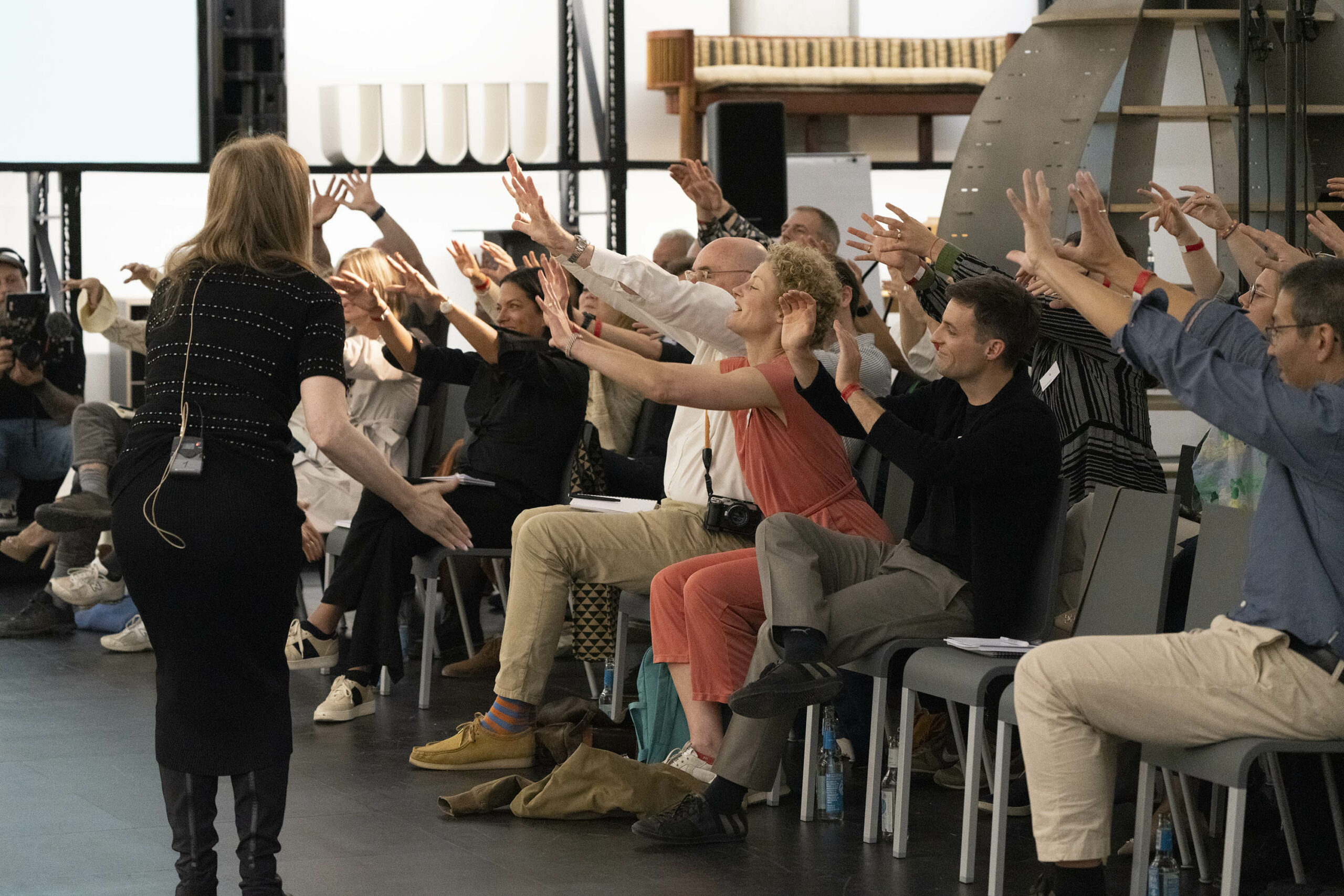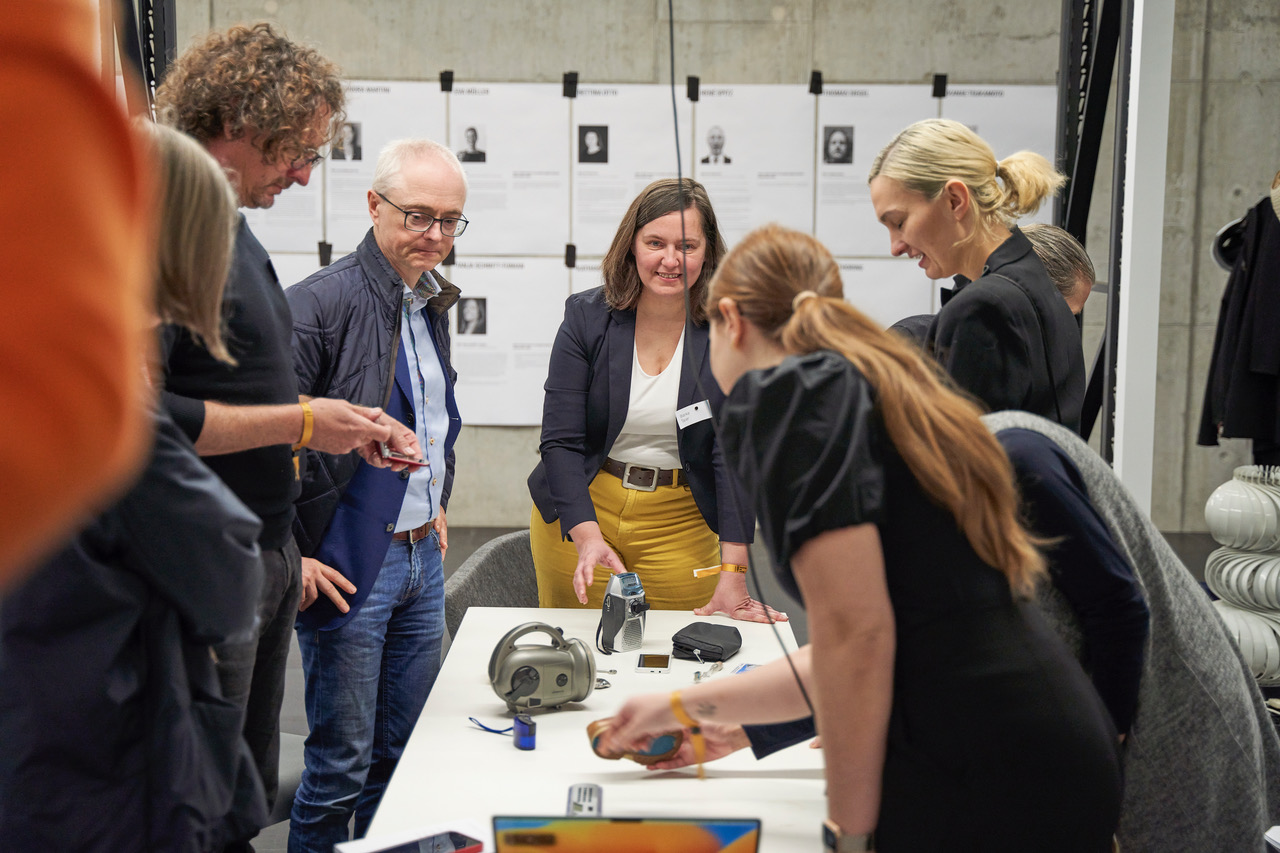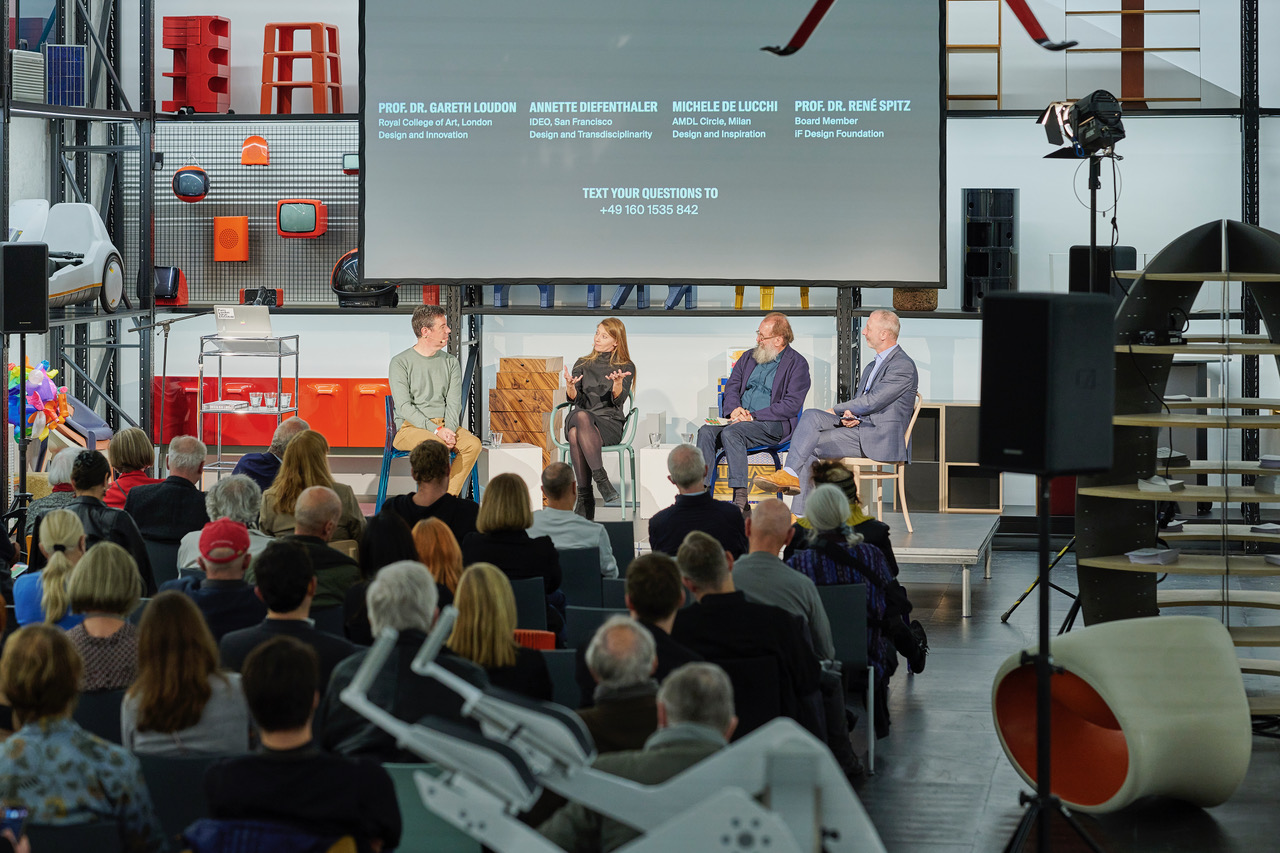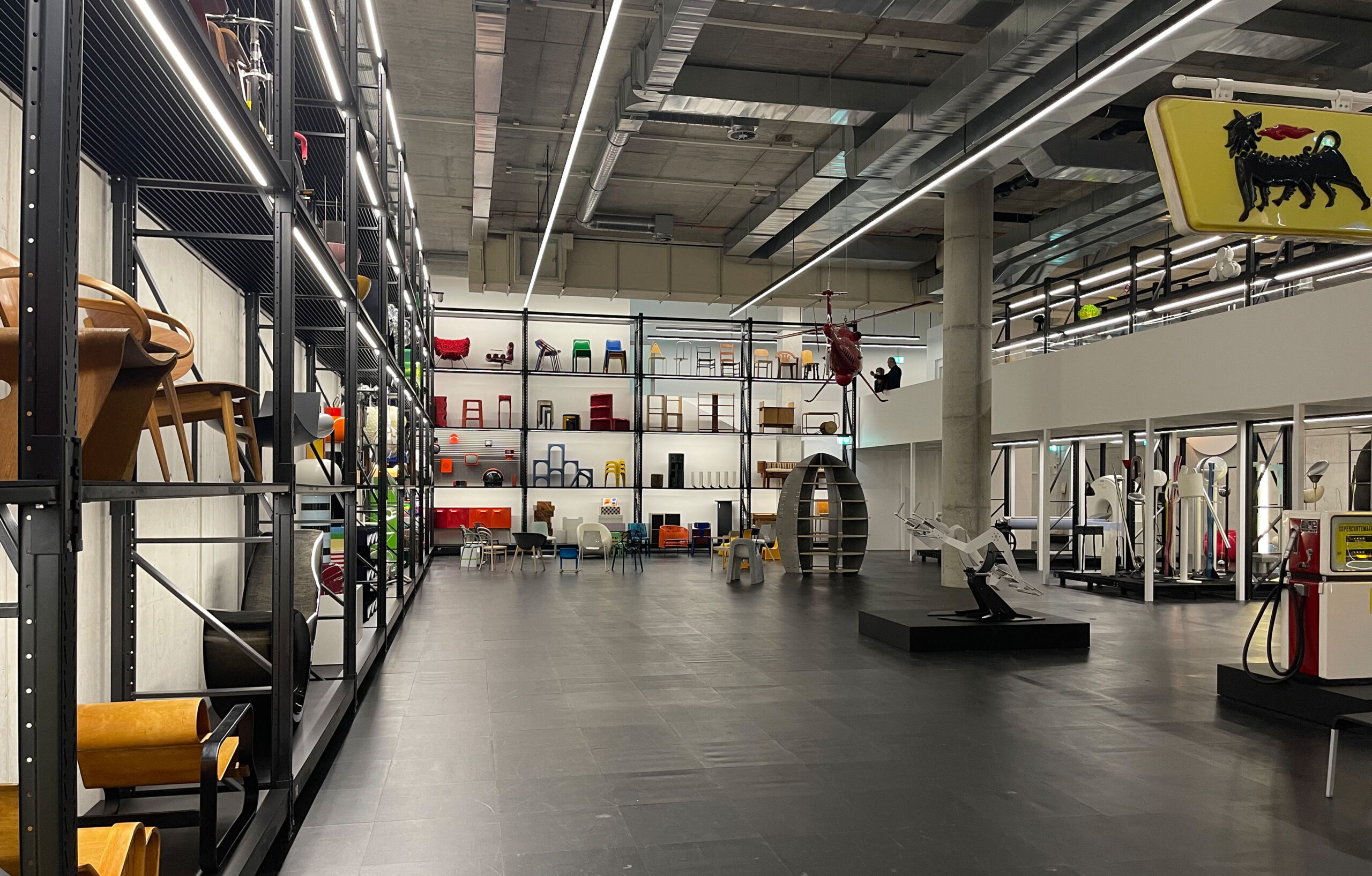Table of Contents
19.-21.03.2024
Impulses for a new curriculum, part 3
Artificial intelligence
As part of the Open Campus project by the iF Design Foundation and Die Neue Sammlung - The Design Museum, the third event on the future of design education took place in Munich from March 19 to 21, 2024. How is the emergence of AI already shaping design education today and how can AI tools be implemented in future teaching? Impulses from the fields of theory and practice were provided by Savannah Kunovsky (IDEO), Dr. Madeline Gannon (atonaton), Prof. Dr. John Zimmerman (Carnegie Mellon University), Yusuf Ahmad (Playlab) and Seth Trudeau (Routine Chaos). The three-day event at the X-D-E-P-O-T of the Pinakothek der Moderne featured lectures, workshops and a concluding symposium, which was open to the public.
The iF Design Foundation and Die Neue Sammlung have agreed on the joint program "Designing Design Education - Impulse for a New Curriculum“. It will run until 2025 and, during the course of the program, Die Neue Sammlung turns into a public campus. The focus is on practically applicable impulses to advance design education. The selection of impulses is based on findings published in the 2021 "Designing Design Education“ Whitebook. The starting point is the universally expressed view that design education needs to be updated from multiple perspectives. The project aims to provide design educators with a tested set of applicable tools and findings that they can use for their own transformation.
The kick-off event took place in October 2022. Two events on different aspects of education followed in 2023, with another three planned for this year. Each of these events includes an invite-only part, during which 30-40 invited participants receive impulses as well as concrete suggestions from international experts. These suggestions are based on state-of-the-art science and research and have been tried and tested in teaching - but have not yet been established in design education. The topics are considered and discussed in a concluding symposium which is open to the public.
The approximately 40 participants who attended the Artificial Intelligence focus event represent the broad spectrum of activities associated with design: teaching and research (predominantly), but also design practice (independent and employed), consulting, management, exhibitions, and journalism.
Creating value with moderate AI
The first impulse on the subject of "Creating value with moderate AI" was provided by Prof. Dr. John Zimmerman from Carnegie Mellon University, who has over XNUMX years of experience in designing AI products and services. He shared his insights about the misconceptions and challenges of AI and discussed the critical involvement of designers and creatives in AI development. He began by noting that XNUMX% of AI initiatives fail to be deployed, with half of those that are deployed being unsuccessful for reasons such as unrealistic visions, lack of data, excessive cost, lack of user value or ethical concerns. Zimmerman suggested that a shift in strategy is needed, drawing on Google's approach to training teams to identify AI use cases. Rather than seeing AI as a superhuman entity and trying to make it replace experts, Zimmerman recommended targeting 'low-hanging fruits' to ensure that the tools being considered are feasible and provide a service that people want to use. The presentation highlighted that valuable AI models are often only moderately accurate, and advocated that design should act as a facilitator in AI, exploring areas where model performance can be improved.
Animacy and Agency
The second impulse presentation on “Animacy and Agency” was held by Dr. Madeline Gannon (atonaton), who specialises in the field of robotics, pushing the boundaries of what robots can do beyond their original design. Recognised as one of the top ten women in robotics industry by Analytics Insight, Gannon envisions a future where robots are curious, and alive, and kind. Her work emphasises animacy and agency, training robots to act more freely and improvisationally, and merging architecture and design with robotics. In her talk, Gannon challenged the traditional notion of robots, defining them not only as humanoid figures, but as any entity equipped with "a mechanical mind and mechanical muscles". She pointed out that robots in various forms, such as delivery drones, industrial robots and XNUMXD printers, are already integrated into our daily lives. Seeing them as mechanical creatures, she advocated a shift from controlling machines to connecting with them as they become more intelligent and autonomous. Her background in architecture is crucial to her approach, which aims to merge the arts and humanities with robotics.
Getting hands on with GenAI
In the third talk of the workshop, Savannah Kunovsky (IDEO) and Seth Trudeau (Routine Chaos) delved into the realm of Generative AI (GenAI), emphasising its role as augmented intelligence that can enhance human capabilities rather than acting as a rival. They underlined how AI has become seamlessly integrated into our lives, influencing both the design process and the potential for new products and services. Stressing the importance of designing responsibly, the duo explored how GenAI can open up new possibilities for designers, acting as a provocative partner that encourages bold and creative ideas. Kunovsky and Trudeau also highlighted IDEO's proactive research with Gen Z to understand their perceptions of AI. Their investigation showed that Gen Z see AI as a tool to deepen human connections rather than replace them, to help them navigate life with intention without shielding them from authentic experiences, and to assist them in embracing their imperfections rather than eliminating them. Finally, Kunovsky and Trudeau cautioned against bias, noting that while tools may seem morally neutral, the biases of their creators are reflected in their outcomes. They also warned of exploitation and monetisation, the dangers of misinformation and manipulation, and the importance of privacy, questioning the origins of the data used by models and how user input is managed. Their perspective therefore called for a careful and considerate approach to the integration of AI into our lives, ensuring that it serves to enhance rather than diminish human interaction and creativity.
In a final impulse, Yusuf Ahmad (Playlab) addressed the critical question of democratising AI creation, expressing concern over the current scenario where a limited number of individuals wield significant influence over AI tools' development. Highlighting that there are approximately XNUMX million educators globally, he argued for broadening access to AI tool creation to avoid a future dominated by products from a select few. Ahmad called for public infrastructure that empowers more people to develop AI tailored to their unique contexts, thereby increasing diversity and inclusivity in AI applications. Putting that into action, Playlab, the non-profit he co-founded, focuses on simplifying the process of creating AI tools and ensuring their accessibility and shareability. Ahmad emphasised the importance of technology enhancing life without adding unnecessary complexity or reducing quality. He advocated for accelerating open-source AI to foster transparency, noting that the opacity of most systems, which function as "black boxes," hinders understanding of their training and operational mechanisms. During the workshop, participants were invited to create their own application using Playlab and experienced first-hand the ease of building their own AI products through straightforward instructions and testing.
All impulses are also available as a short version on our YouTube channel.
iF Design Foundation on YouTube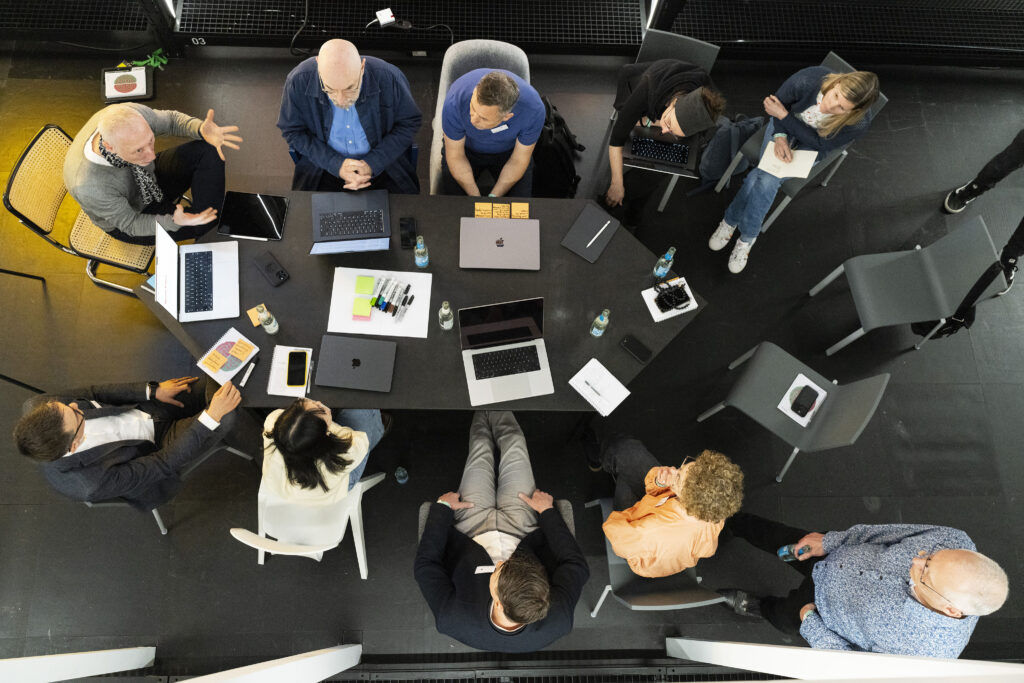

The symposium
A symposium open to the public summarised the results of a learning-intensive day of workshops and invited the audience to participate in the discussion.
Each event of the series ends with a symposium, which is open to the public and takes place at the X-D-E-P-O-T of the Pinakothek der Moderne, where the findings of the workshops are shared and discussed with the audience. After a brief introduction by board members and hosts René Spitz, Annette Diefenthaler and Christoph Böninger, Prof. Dr. John Zimmerman recapped his talk from the previous day, sharing his thoughts on why so many AI initiatives fail and how designers and data scientists can work together to create tools that deliver valuable results. Subsequently, Dr Madeline Gannon outlined her vision of creating robots that are trained to go beyond simple, repetitive tasks to enable connection and mutual curiosity. This was followed by Savannah Kunovsky and Seth Trudeau's presentation, which focused on how Generative AI can enable designers to explore new possibilities, as well as some insights into how Gen Z perceive and want to interact with AI. Finally, Yusuf Ahmad demonstrated how to lower the bar for who can create with AI, and presented examples of applications created by workshop participants during his session.
An outlook on the Campus Project by iFDF x DIE NEUE SAMMLUNG until 2025: Upcoming events
The Director of Die Neue Sammlung, Prof. Dr. Angelika Nollert, concluded by thanking the panel and audience for the many thought-provoking ideas. There will be two more events in this series in XNUMX: in June (XNUMXth – XNUMXst), the topic will be "Leadership / Sustainability & Public Value", while the October event (XNUMXth – XNUMXth) will be dedicated to the subject of "Innovation".
If you are interested in participating in the invite-only workshops, please subscribe to our mailing list here (see below for newsletter registration). We will then invite you in due course. Participation is free of charge, the number of places is limited, and confirmations will be issued in the order in which registrations are received.
Speaker »Artificial Intelligence«

Savannah Kunovsky
IDEO
As Managing Director at IDEO, Savannah has designed and led new products and ventures for over a decade. She is the Global Head of IDEO's Emerging Technology Lab, bringing businesses from today's realities to the worlds we'll live in next. Prior work includes pioneering Emotion AI for mental health with Dr. John Gottman, co-founding a chain of tech education schools in Sub-Saharan Africa, and building the coding bootcamp industry as a software engineer at Hack Reactor. Recognized by MIT, Forbes, and the World Economic Forum, she's an early stage advisor who's propelled startups from ideation through Series B. Savannah is committed to designing tech that serves humanity, the planet, and life on earth.

Dr. Madeline Gannon
atonaton
Dr. Madeline Gannon, a multidisciplinary designer blending techniques in art, design, computer science, and robotics to forge new futures for human-robot relations. Also known as "The Robot Whisperer", Gannon specializes in convincing robots to do things they were never intended to do: from transforming giant industrial robots into living, breathing mechanical creatures, to taming hordes of autonomous machines to behave like a pack of animals.
Dr. Gannon has been a World Economic Forum Cultural Leader, a Robotics & AI Researcher at NVIDIA and a former artist in residence at ETH Zurich, Autodesk Pier 9, and the Carnegie Mellon STUDIO for Creative Inquiry. She is known as one of the 'Top 10 Women in Robotics Industry' and 'World's 50 Most Renowned Women in Robotics' according to Analytics Insight. Gannon holds an M.Arch from Florida International University, and a Ph.D in Computational Design from Carnegie Mellon University.

Prof. Dr. John Zimmerman
Carnegie Mellon University
John Zimmerman is the Tang Family Professor of Artificial Intelligence and Human-Computer Interaction at the HCI Institute, one of seven computer science departments within Carnegie Mellon's School of Computer Science. He conducts research on human-AI interaction, human-robot interaction, and AI innovation processes. He teaches courses in UX design, service design, and on the design of AI products and services. He joined the university in 2002. His professional experience includes time at Philips Research investigating new forms for interactive television as well as several years working in film, video, and multimedia production. John is a member of ACM's CHI Academy and has been an AAAS fellow focused on outreach to the public about AI. He's published over 150 peer-reviewed papers and authored 40 patents. He regularly speaks on design, HCI, and AI at academic conferences and within the tech industry. While at Philips, he co-invented a method for scrolling touchscreens now used on almost all phones and tablets.
John has 20+ years of experience designing AI products and services. For the last several years he's explored the idea of AI as a Design Material, including what makes AI uniquely difficult to design. He's designed TV show recommenders, office productivity tools that automate routine tasks, a system that learns the pick-ups and drop-offs of busy parents and keeps them from forgetting their kids, a decision support tool that helps cardiologists decide when to implant mechanical hearts , a crowdsourced real-time arrival system for transit riders, and smart classrooms that watch instructors teach and offer feedback on their actions and student reactions so they can improve their teaching. Prior to this workshop, he spoke at SXSW 2024 on Designing Successful AI Products and Services.

Yusuf Ahmad
Playlab
Yusuf is the CEO of Playlab, a tech nonprofit that empowers educators & impact organizations to build their own AI tools.
Prior to founding Playlab, Yusuf led new product development for Teach For America, contributed to Scratch (a creative coding platform used by millions of kids), researched at the MIT Media Lab, and was on the founding team of ALU & ALX, a pan -African network of universities and alternative higher ed pathways.
Outside of work, he mentors startups through MIT's Sandbox Fund, angel invests in AI edtech companies like LitLab and Recess, and is a proud girl dad.

